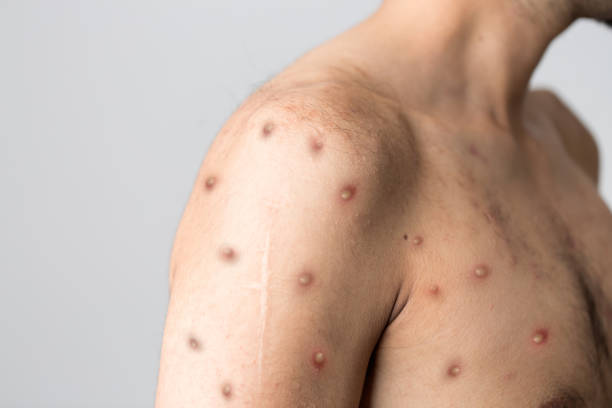Smallpox is a life-threatening viral infection caused by the Virola virus. It is highly contagious, meaning it can easily spread from person to person, and it can cause permanent scarring that may disfigure a person.
The virus is contagious from when the first symptoms develop till the scabs fall off, and it can spread through contact with the body fluids of an infected person, sharing of clothes or beddings, and saliva droplets via cough or sneeze.
There are four types of smallpox:
- Variola minor, which is the less fatal type.
- Variola major, which is more common and deadly.
- Hemorrhagic smallpox which causes organs to leak blood.
- Malignant smallpox, where smallpox lesions remain flat and soft throughout the duration of the illness instead of forming pus-filed bums on the skin.
Symptoms of Smallpox
People with smallpox experience different symptoms depending on the stage of the illness. The various stages and associated symptoms include:
- Incubation Stage: There are no symptoms within the first 7 to 19 days of getting the virus, and it isn’t contagious during this phase.
- Early Symptom: After the incubation period, the patient will experience flu-like symptoms such as chills, high fever, headache, vomiting and body aches. This stage lasts for about 2 to 3 days, and the virus is highly contagious.
- Early Rash: when a patient starts to recover from the first symptoms, a rash will begin from the face and spread to the forearms, hands and other parts of the body. The virus is contagious until the rash completely disappears.
- Pustular Rash: This is the next noticeable symptom of smallpox; after two days, it becomes filled with pus and then breaks open, resulting in scabs.
- Scabs: the scabs later fall off and leave a pit mark scar, and until the scabs fall off, the virus remains contagious.
Treatment
There is no cure for this virus, but antiviral treatments may reduce the symptoms and severity of the infection. Treatment options include Brincidofovir, Tecovirimat and Cidofovir. Vaccination can also help people prevent smallpox, and it can still be effective if taken within the first 1 to 3 days of getting the infection. Doctors may also recommend antibiotics to reduce the bacterial infections that may occur along the line.



